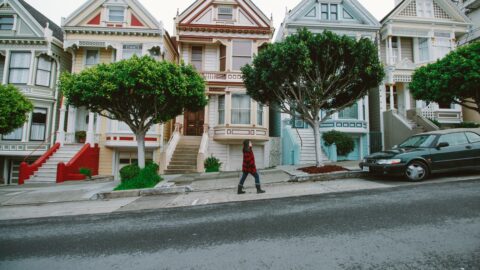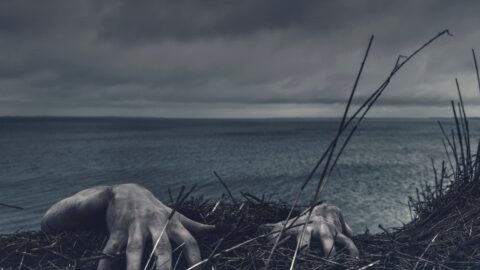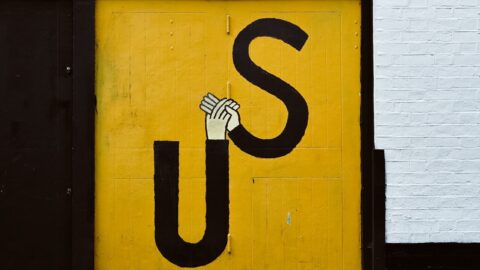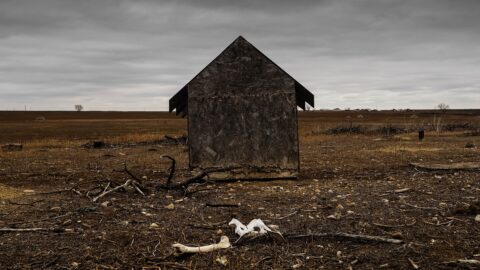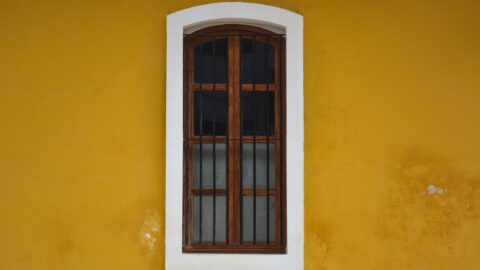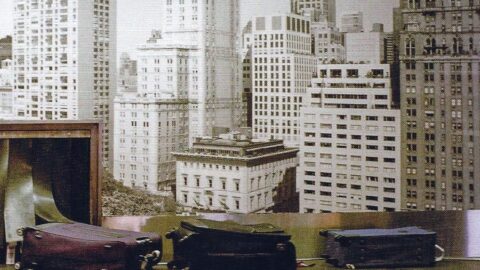Noor Al-Samarrai’s debut poetry collection, “El Cerrito” (Inside the Castle, 2018) documents the wanderings and explorations of its narrator as she travels the suburbs of El Cerrito, California. Formally, the project is split into two major components: the poems themselves and the extensive footnotes which document the historical and personal references made throughout the book.
James Markert Blends Reality with Fantasy in “All Things Bright and Strange”
World War I was a very chaotic time in world history. Soldiers suffered from post-traumatic stress disorder and civilians often lost touch with reality as the world crumbled around them.
Nevertheless, it has been said that history is the greatest teacher even though the life lessons are usually tough to accept. Historical fiction is a great way to introduce readers to bygone eras, and James Markert’s “All Things Bright and Strange” (HarperCollins, 2018) is a powerful novel about illusions and reality within America during the early 1900s.
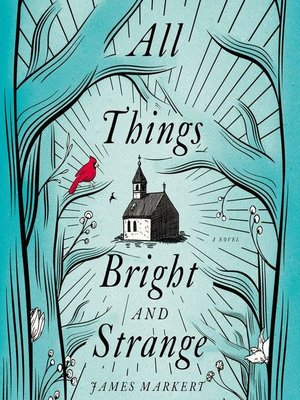
Beauty Eases Pain in Judy Jordan’s Poetry Collection “Hunger”
“What would happen if one woman told the truth about her life? The world would split open.” – Muriel Rukeyser
Poetry collection “Hunger” by Judy Jordan (Tinderbox Editions, 2018) is an honest, intimate account of a woman and her pain. The speaker in the poems faces homelessness after an accident that injured a spinal disk in the small of her back. When the hospital bills became too expensive and she fell behind on payments, the hospital seized the narrator’s bank account. Every dollar to her name is given to the hospital, leaving the woman alone, impoverished and homeless. She goes into the forest where she lives in an abandoned greenhouse, with hordes of plants and insects for Jordan to describe in detail. Our speaker is injured and unable to provide for herself, breeding a physical and spiritual hunger.
Jordan uses the protagonist’s unique situation as a playground for poetry and imagery, giving us thick, clamoring descriptions to guide us through this chaotic situation.
Eclectic Absurdism: Reading Mark Leidner’s Under The Sea
Mark Leidner’s newest book, “Under The Sea” (Tyrant Books 2018), is a collection of short stories that span across time and space, examining the lives of rural Americans, the heartbreaks of a nun, conversations between radicalized ants and far more. Each of these stories feel like a miniature novel, full of unique and engaging ideas.
What I found most fascinating about this collection was the way these stories were arranged. Although none of them are connected (thematically or narratively), there is an impressive flow that forms between them as you read.
“Diffusely Yours” by Kate Garklavs Suggests We Are All Connected on an Atomic Level
In the chapbook Diffusely Yours by Kate Garklavs (Bottlecap Press, 2018) each poem is a letter to a person or institution. These poem-letters are playful, absurd and full of private meaning.
The speaker diffuses bits of herself and her very visceral memories to a friend, lover or regular haunt, but it also clear she has absorbed parts of these people and places into herself as well.
Movement Through Duration: Reading Anne-Marie Kinney’s “Coldwater Canyon”
“Coldwater Canyon” (forthcoming from Civil Coping Mechanisms, October 2018) is a novel that follows a Desert Storm veteran as he meanders through life,
Erasure and Apocalypse in Claire Wahmanholm’s “Night Vision”
In Claire Wahmanholm’s poetry chapbook “Night Vision” (New Michigan Press, 2017), the world is transformed and brought to its most primal state after some catastrophic events that readers may never be quite sure of. The chapbook includes 30 poems—21 prose poems and nine erasure poems. (Erasure poetry is a form where an entire page of found text will be erased until only a few words remain. These leftover words form a poem.)
All nine erasure poems in “Night Vision” come from the wildly popular “Cosmos” by Carl Sagan, setting a reader expectation of wonder at the universe.
Loss an destruction are detailed instead, through Wahmanholm’s gripping yet elusive prose.
Poetic Territorialization: Reading Janice Lee’s The Sky Isn’t Blue
Janice Lee’s “The Sky Isn’t Blue” (Civil Coping Mechanism, 2016) is a gorgeous collection of lyric essays exploring the ways that space and poetry coalesce. Each section of the book examines a different location and all of the associations, thoughts and emotions that have manifested within it.
Beyond “Dualities” in Poetry by Jason Phoebe Rusch
“Dualities,” the debut poetry collection by Jason Phoebe Rusch (Short Flight/Long Drive Books, 2018), is a coming of age story told in mostly first person. The collection of poetry glimpses into someone’s life, one narrative at a time. Rusch captivates readers with vivid words describing times, places and feelings.
In “What Do You Love About Haiti?” readers get to know a little more about Rusch. He travels, including time in Haiti during an earthquake. The powerful images here suggest he witnessed the aftermath of the 7.0 magnitude earthquake in 2010, as Rusch states:
I’d never seen a dead body
before the earthquake. The earth
that day felt like something moving
underneath, in pursuit…
After the earthquake, I became accustomed
to the smell of death, no longer noticed it
clinging to my clothes, my skin. It became
the norm that houses should look like dioramas,
rooms exposed: staircases twisted and mangled,
kitchen tables tilting.
These words leave the reader uncomfortable yet compassionate. Indeed, uncomfortable yet compassionate is the theme throughout “Dualities.”
Small fires, dulled senses in the short fiction of Andrew Duncan Worthington
The main assertion of collection “A Very Small Forest Fire” by Andrew Duncan Worthington (Bottlecap Press, 2018) seems to be that the ultimate way to undermine capitalism is to be too bored to participate.
“Assertion” may be too strong a word. These 12 short-short stories employ what I suspect is purposefully dull and vague language, creating characters numbed by the constant stimulation of modern American society. Narrators (often unnamed) drift through recreation activities but don’t have any fun—they don’t feel much of anything. The sparse language evokes Kerouac, but with a more limited vocabulary.
“Census” by Jesse Ball: An Odyssey from A to Z
Jesse Ball is a respected voice in contemporary fiction, with novels such as “The Way Through Doors” and “How to Set a Fire and Why.” In spite of the dark, depressing and even graphic content in his writing, his work ultimately reveals the enduring power of hope, love and creativity.
Ball is not afraid to write about disturbing topics, which makes his newest novel “Census” (HarperCollins, 2018) a modern masterpiece that presents characters who persevere in the face of adversity.
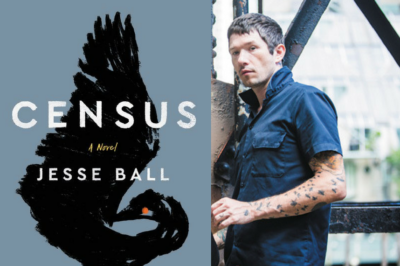
Jeff Jackson’s “Mira Corpora” Mixes Journal Entries with Fantasy
When’s the last time you picked up an old notebook?
My notebooks are filled with angry stanzas that could hardly qualify as poetry, doodles of samurai where there should be algebraic equations, and the occasional short story. If you flipped through my old journals and diaries, you could probably learn a lot about me, because I used my journals as a getaway from reality. Or maybe your journal is your archive of your reality.
“Mira Corpora” (Two Dollar Radio, 2013) is a collection of surreal journal entries by Jeff Jackson, a celebrated author and playwright. The book “is a coming-of-age story for people who hate coming-of-age stories” according to Jackson’s website.
Deep journeys into the psyche with Chaya Bhuvaneswar
Debut short story collection “White Dancing Elephants” by Chaya Bhuvaneswar (Dzanc Books, forthcoming October 2018 and winner of the Dzanc Short Story Collection Prize) plunges readers deep into the psyche of women—largely South Asian women.
Characters have the darkest corners of their minds exposed (through their own admissions or by omniscient narrators) and what comes forth is usually disagreeable. At the same time, well-trodden narratives about immigration are upended regularly.
The main character in “Jagatishwaran” is a woman who refuses to feel gratitude for or awe of a sister who has emigrated to the U.S. “But it’s my sister who’s the smart one, the doctor lady,” she rants to the reader.
“She thinks of us as dull-witted rice eaters waiting for her borrowed Anglo china plates and blue jeans, silk ties and pantyhose, perfume in fish shaped bottles, white linen napkins and forks so we won’t eat with our hands, expensive bolts of brilliant cloth—smelling slightly of glue, precious…”
Rebecca Drake’s “Just Between Us” satisfies the need for a psychological thriller
How does one separate what is true from what is false? Given the subjective nature of reality, it can be very difficult for people to trust anyone, even those near and dear to them.
This famous theme has formed the basis of countless works of fiction and major motion pictures (just one example is the 1996 film “Secrets & Lies“). As the audience, we know that secrecy can create a compelling story filled with tension, drama, and suspense. In this tradition, Rebecca Drake’s “Just Between Us” (St. Martin’s Press, 2018) provides a fascinating examination of the limits of friendships, especially when close friends lose the trust that originally bonded them together.
Deconstruction and Rebirth in the Poetry of Caseyrenée Lopez
Debut poetry collection “the new gods” by Caseyrenée Lopez (Bottlecap Press, 2018) uses rich language to conduct an examination of the body: how bodies are placed within pop culture, how they are valued or derided in society, and how they are the vessels that lead us through love.
Multiple Perspectives in Matthew Pitt’s “These Are Our Demands”
What would you do if you could see three seconds into the future?
Matthew Pitt’s “These Are Our Demands” (Engine/Ferry Street Books, 2017) provides an answer. In one short story, Paul is a Polish “minute oracle,” and Maddy knows it. As his English tutor, she does her best to teach him the language, but of course there are always going to be certain things lost in translation. He knows she is pregnant, but does her man know she is carrying a baby boy?
Michalski’s “The Summer She Was Under Water,” a Refreshing Read
Reading “The Summer She Was Under Water” (reissued by Black Lawrence Press, 2017) by Jen Michalski has been truly refreshing. It is a fictional story with deep and complicated characters, while still managing to be easy to read. Like water, the language is clear and the flow of the story smooth.
Louise Erdrich Pens a Dystopia
We’ve come to know Louise Erdrich as an established writer thanks to novels like “Love Medicine,” so it may come as a surprise that her most recent work tackles broad and philosophical questions in a dystopian setting. Her latest novel, “Future Home of the Living God” (Harper, 2017), combines poetic prose with fantastical ideas to create a spellbinding reading experience.
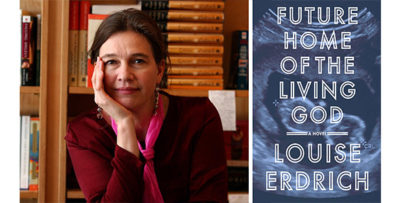
The protagonist, 26-year-old Cedar Hawk Songmaker, is our guide into an America where a totalitarian state rules and babies are being born with animal traits.
Teju Cole challenges us to locate our own “Blind Spot”
It is early December and daylight hours are so short that I worry I am forgetting what colors truly look like. My eyes are ever tired. I am weary. It happens every year around this time and I feel worn-out until spring arrives.
This week I found an antidote in photography-prose hybrid Blind Spot by Teju Cole (Random House, 2017).
A gorgeous collection of color photography and evocative text, Blind Spot shook me awake from dormancy. Each photo is titled with the location it was taken, featuring datelines like Venice, London, Lagos and Beirut. The accompanying text sometimes introduces the picture or refers to previous shots. Other times, the text muses on a philosophical idea, classical painting, or bit of music where the reader is left to connect the words to the image. (I was pleased to learn that Cole is a fan of both Bjork and Beck, among others.)
[Lukao] by Craig Santos Perez: The Birth and Life of an Island
Right from the get-go, Craig Santos Perez lets the reader know that the space they enter is a personal one. Poetry collection [Lukao] (Omnidawn, 2017) is laden with natural beauty, heartfelt stories and sincere love. It also reveals the everyday truth behind the island of Guam and, indeed, the world at large.
Before we even reach the poetry, the collection offers what Perez calls a “poemap,” a picture outlining Guam’s cable network. The small island is crisscrossed with black lines which, according to Perez, “carry almost all transpacific Internet traffic.” Guam is a hub, interconnecting the USA with other continents. It’s a striking image to begin a book of poetry with, not least because of its utilitarianism. Guam is a tool for the United States, the reader sees, introducing the expectation of seeing the life and love breathing between those cables. Or struggling between them.
Hidden Romanticism in the “Post Human” Poetry of Nate Pritts
It is impossible to deny that recent technological developments in biotechnology, cognitive science and “big data” infrastructure have made us, as a civilization and as artists, aware of all that is problematic in technology. We may call this movement toward introspection “post-humanism,” an exploration of technology’s advancements and controversies. This philosophy began as a niche within feminism from Firestone to Haraway, then existed in the cult realm of trans-humanism or as a science-fiction fixture.


